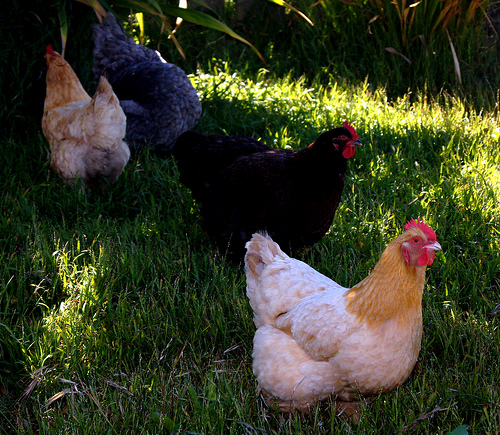Chicken keeping is on the rise. The Guardian reported in 2011 that over 500,000 households now care for a brood of hens in their garden, and as such enjoy the nutritious and mood-lifting benefits that come attached. However, although almost everyone can understand the basic appeal of chicken keeping, the fact remains that some potential owners are concerned by the ethical aspects. In this article, I will discuss the moral reservations that could affect your decision to keep chickens.

Free Range Chicken Keeping
Of course, the primary ethical concerns are bound to revolve around the conditions your chickens are kept in. According to some, it is always wrong to keep animals captive in order to provide food – however, if you’re reading this article, I doubt that you belong to this school of thought. The crux of the issue is the quality of life that your hens will enjoy, and for the vast majority of home-kept hens, there is no need to be concerned. The Department for Environment, Food and Rural Affairs has published guidance on domestic chicken keeping, recommending that adequate floor space, bedding, and protection from predators be provided. In practice, you will receive advice when you purchase your coop, and simply adhering to this ought to mean that you are providing a perfectly suitable environment for your flock. However, if you remain concerned by the constraints placed on your chickens by their coop, you would do well to consider the following option.
Adopt a Battery Hen
Traditional battery cages were outlawed across the European Union in January this year, but sadly, it remains the case that not all commercial chickens are kept in humane conditions. The British Hen Welfare Trust provides a rehoming service, and there are always going to be more needy hens than homes. So, if you want to do your bit, you might consider adopting an ex-battery hen. Chicken keeping instills a great sense of wellbeing in all cases, but nevertheless, it is easy to see how caring for hens who have been kept in poor conditions in the past could be even more rewarding. The transition from a cramped cage to a generous outdoor coop will be a sudden one, and these chickens will not initially appear or behave as ‘naturally’ as others would. However, within a few days, your new brood should have returned to a more characteristic state; with healthier coats, stronger legs and tastier eggs!
An Eco-Friendly Option
Not only is domestic chicken keeping ethically sound – it’s environmentally friendly, too. Your chickens will eat leftover food and produce fertiliser, reducing your waste output and revitalising your garden. What’s more, you won’t be buying eggs that have been transported from afar, diminishing your ‘food mileage’ and carbon footprint. All in all, the ethical argument for domestic chicken keeping seems sound to me!
URL Image: http://farm6.staticflickr.com/5117/7429825298_62cac6a95d.jpg
Paul Walters is a blogger and free-range fanatic. He and his family, which includes a brood of hens, live in sunny Sussex.

